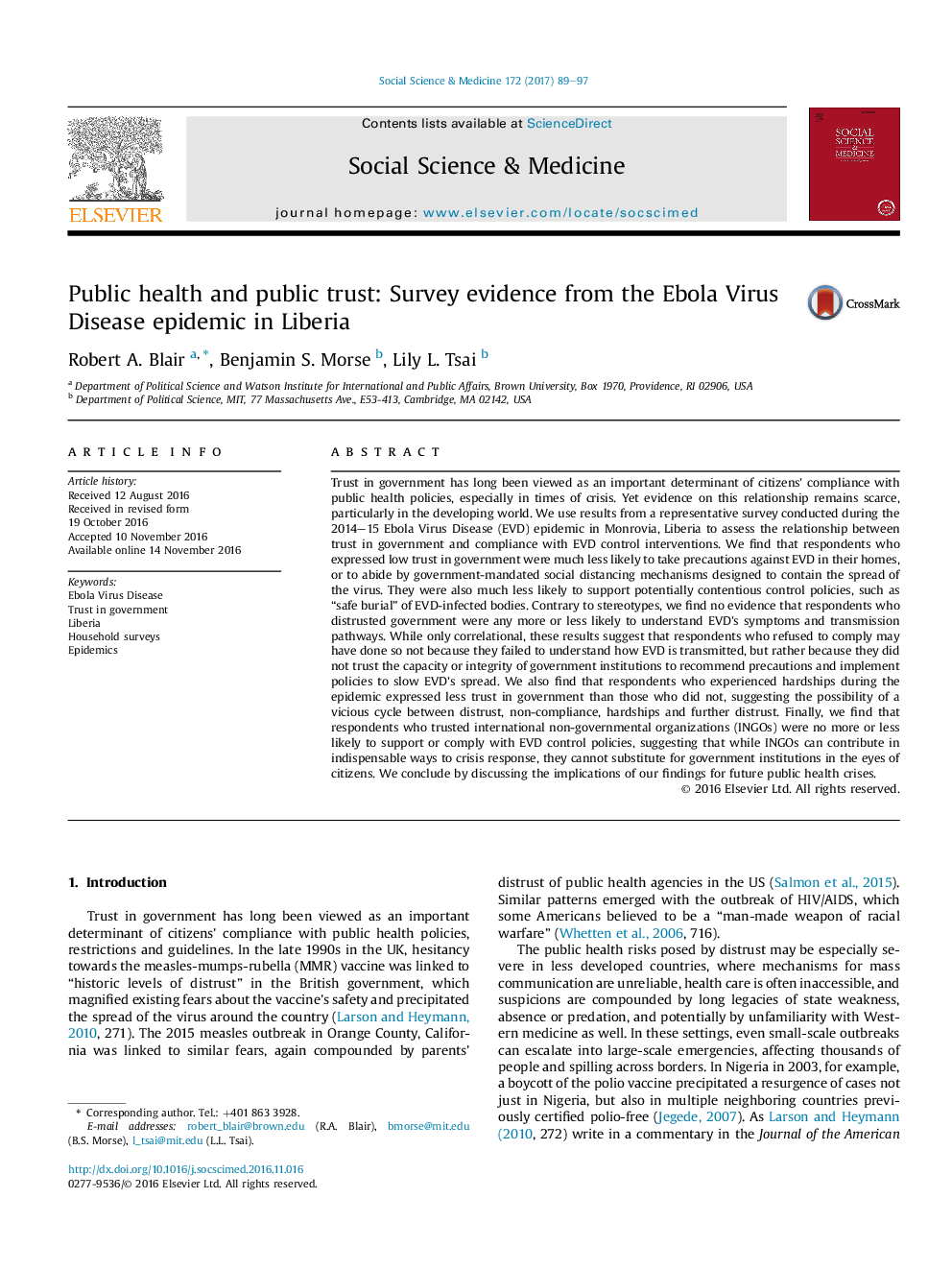| کد مقاله | کد نشریه | سال انتشار | مقاله انگلیسی | نسخه تمام متن |
|---|---|---|---|---|
| 5046791 | 1475997 | 2017 | 9 صفحه PDF | دانلود رایگان |
- Large representative survey conducted during the Ebola crisis in Monrovia, Liberia.
- One of few quantitative studies on trust and public health in the developing world.
- Shows that Liberians who distrusted government took fewer precautions against Ebola.
- Those who distrusted government were also less compliant with Ebola control policies.
- Demonstrates the deadly role distrust can play in exacerbating public health crises.
Trust in government has long been viewed as an important determinant of citizens' compliance with public health policies, especially in times of crisis. Yet evidence on this relationship remains scarce, particularly in the developing world. We use results from a representative survey conducted during the 2014-15 Ebola Virus Disease (EVD) epidemic in Monrovia, Liberia to assess the relationship between trust in government and compliance with EVD control interventions. We find that respondents who expressed low trust in government were much less likely to take precautions against EVD in their homes, or to abide by government-mandated social distancing mechanisms designed to contain the spread of the virus. They were also much less likely to support potentially contentious control policies, such as “safe burial” of EVD-infected bodies. Contrary to stereotypes, we find no evidence that respondents who distrusted government were any more or less likely to understand EVD's symptoms and transmission pathways. While only correlational, these results suggest that respondents who refused to comply may have done so not because they failed to understand how EVD is transmitted, but rather because they did not trust the capacity or integrity of government institutions to recommend precautions and implement policies to slow EVD's spread. We also find that respondents who experienced hardships during the epidemic expressed less trust in government than those who did not, suggesting the possibility of a vicious cycle between distrust, non-compliance, hardships and further distrust. Finally, we find that respondents who trusted international non-governmental organizations (INGOs) were no more or less likely to support or comply with EVD control policies, suggesting that while INGOs can contribute in indispensable ways to crisis response, they cannot substitute for government institutions in the eyes of citizens. We conclude by discussing the implications of our findings for future public health crises.
Journal: Social Science & Medicine - Volume 172, January 2017, Pages 89-97
